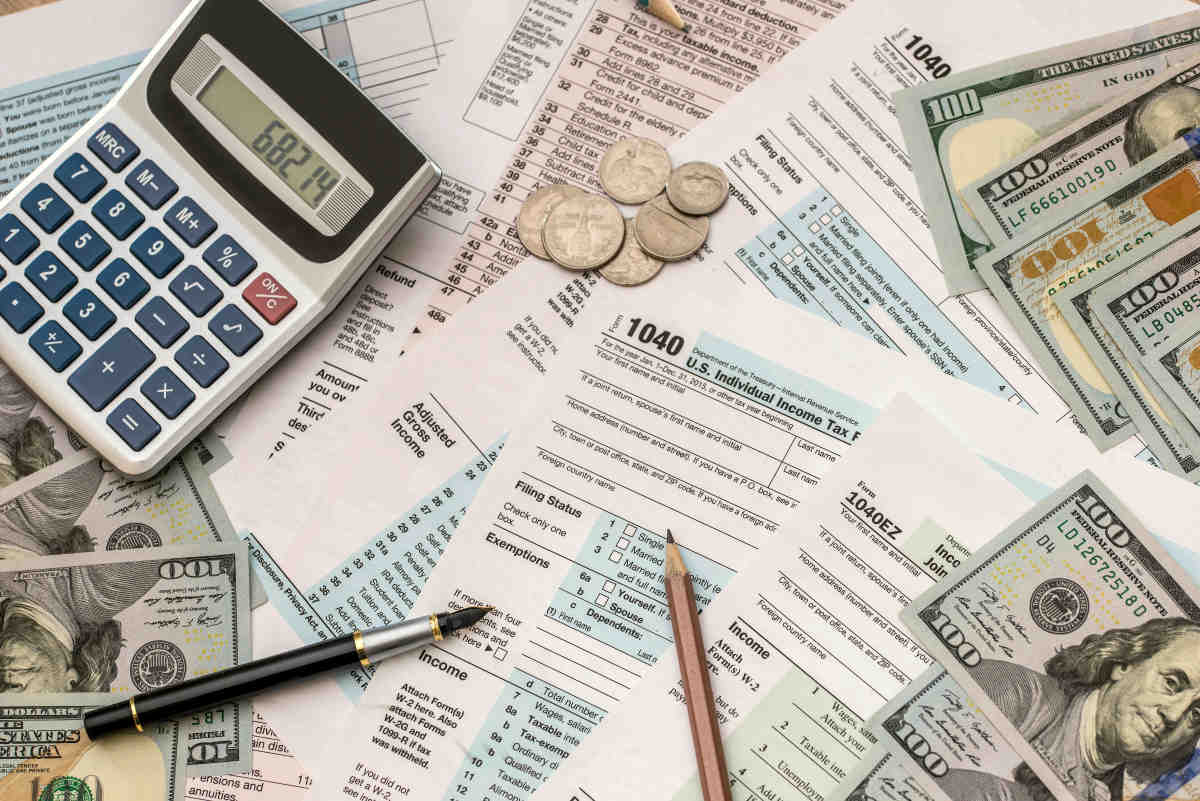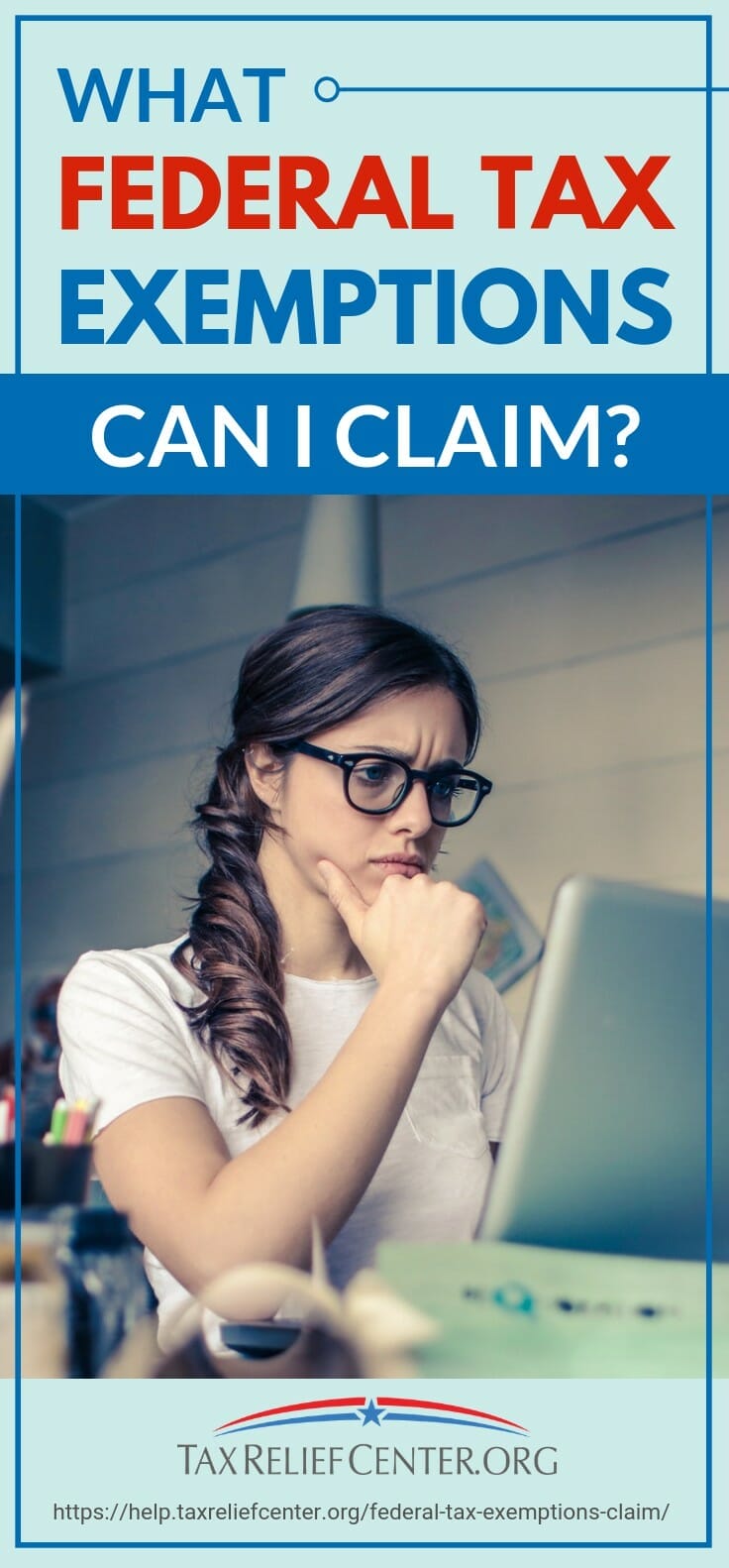Besides claiming your tax refund, a taxpayer can save more money and reduce their financial obligation by knowing the changes in the federal tax exemptions.
Federal Tax Exemptions | The Numbers and Changes That Matter
In This Article:
Personal Exemptions for 2017
When you file your income tax return, you can use federal tax exemptions to lower your taxable income.
As of the tax year 2017, you subtract your standard or itemized deductions. Then, you reduce it further with federal tax exemptions, and you are only assessed income tax on the remaining amount. That is how it used to work.
As of 2018, the Tax Cuts and Jobs Act eliminated the tax exemptions, but you do get a larger standard deduction and some extra leeway with dependent tax credits. Here is a look at how exemptions work for 2017 and a brief overview of the changes in effect for 2018 to 2025.
As of 2017, you get to claim a personal exemption for yourself regardless of how you file your tax return. That is worth $4,050. You may also get to claim exemptions for your spouse and dependents.
Spousal Exemptions for 2017
If you are one of the married couples filing jointly, you can claim federal tax exemptions for yourself and your spouse on your tax return. In most cases, that is the most advantageous way for couples to file. As of 2017, the exemption is worth $4,050 for each of you, so you get to claim a total of $8,100.
If for any reason, you decide to be married filing separately, you each claim your exemption on your respective returns. You can only claim an exemption for your spouse on your tax return if he or she:
- Is not filing a tax return
- Has no gross income and so has tax-exempt status
- Is not being claimed as a dependent on anyone else’s return
To claim federal tax exemptions for your spouse, you must be married on the last day of the year. If you were married all year and you got divorced on the very last day of December, you cannot claim the exemption for that year. However, if your spouse died during the year, you can claim one regardless of when they died.
Dependent Exemptions for 2017
As of 2017, you can also claim a dependent exemption worth $4,050 for each qualifying child and relative you support. To claim this exemption, you need to meet the following criteria:
- You (and your spouse if you are filing together) are not someone else’s dependent.
- The dependent is not filing as married filing jointly unless that return is just to claim a refund.
- The dependent’s income is less than $4,050.
- The dependent is a U.S. citizen, a resident alien, a resident of Canada, or a resident of Mexico.
- The dependent meets the criteria to be a qualifying child or a qualifying relative.
Qualifying Children
A qualifying child must be related to you by blood, adoption, or marriage. That includes children, stepchildren, and foster children, as well as siblings, step-siblings, nieces, nephews, and step-nieces and nephews.
To be considered a qualifying child for the dependent exemption, they must also be under age 19 or a full-time student under age 24. In both cases, the child must be younger than you and your spouse if you are filing jointly. The child must also have lived with you for at least half the year, and if they pay for some of their own expenses, they have to cover less than half.
Disabled people can be considered a qualifying child regardless of their age as long as they meet the other criteria.
Qualifying Relative
If someone depends on you for their financial support but they do not meet the criteria to be a qualifying child, they may be a qualifying relative. In spite of the label, this individual does not necessarily have to be a relative. This designation can also apply to non-relatives who lived with you for the whole year and depended on you for support.
If the individual does not live with you, they need to be one of the following: your (adult) child, stepchild, grandchild or a descendant of your child, stepchild, grandchild, or foster child. They can also be your son- or daughter-in-law, sibling, half-sibling, step-sibling, sibling-in-law, parent, step-parent, father- or mother-in-law, or grandparent. The in-law designation still stands even after a divorce. You can also claim aunts, uncles, nieces, and nephews as qualifying dependents.
Changes to Federal Tax Exemptions for 2018
As of the tax year 2018, all personal, spousal, and dependent federal tax exemptions have been eliminated, but the standard deductions have been increased. This change benefits some but potentially increases income tax for others.
As a reminder, the IRS lets you choose from two deductions: the standard deduction and the itemized deduction. To calculate your itemized deduction, you add up a number of expenses including interest you pay on your mortgage or medical costs over a certain percentage of your income. Then, you compare that to your standard deduction, and you claim the larger amount.
The majority of Americans claim the standard deduction. In 2016 and 2017, about 70% did it, but for 2018 and years going forward, that percentage is likely to increase substantially.
In 2017, the standard deduction for a single person was $6,500 and for a couple filing jointly, it was $13,000. For 2018, the standard deduction increased to $12,000 for single filers and $24,000 for married couples filing jointly.
To compare the situation, imagine you are a couple filing jointly with one kid. In 2017, you claim the standard couple deduction of $13,000 plus $4,050 each for you, your spouse, and your child. That works out to be $13,000 + $4,050 x 3 = $25,150.
As of 2018, you get the couple deduction of $24,000 and no federal exemptions, but you have access to a $2,000 tax credit for your child. In the past, that credit phased out if your income was over $110,000, but with the new laws, as a couple, you can claim the child credit if your income is up to $400,000.
What about your non-child dependents? Again, you cannot claim the $4,050 exemption, but you can claim a $500 credit. However, the dependent individual must have tax-exempt status and absolutely no income.
Want to know how the 2018 child tax credit? Watch this video from Build Your Tomorrow:
If you forgot to claim any federal tax exemptions on previous tax returns, you may want to see if you can file an amended return and claim those retroactively. Moving forward, plan your tax returns accordingly. Make sure your non-child dependents do not have any income so you can claim the credit for them. If you need help with old taxes or IRS tax debt, contact us directly. At Tax Relief, we can help you get the relief you need.
What do you think of the removal of the federal tax exemptions? Let us know in the comments section below.
Up Next: How To Determine Federal Tax Refund Status






